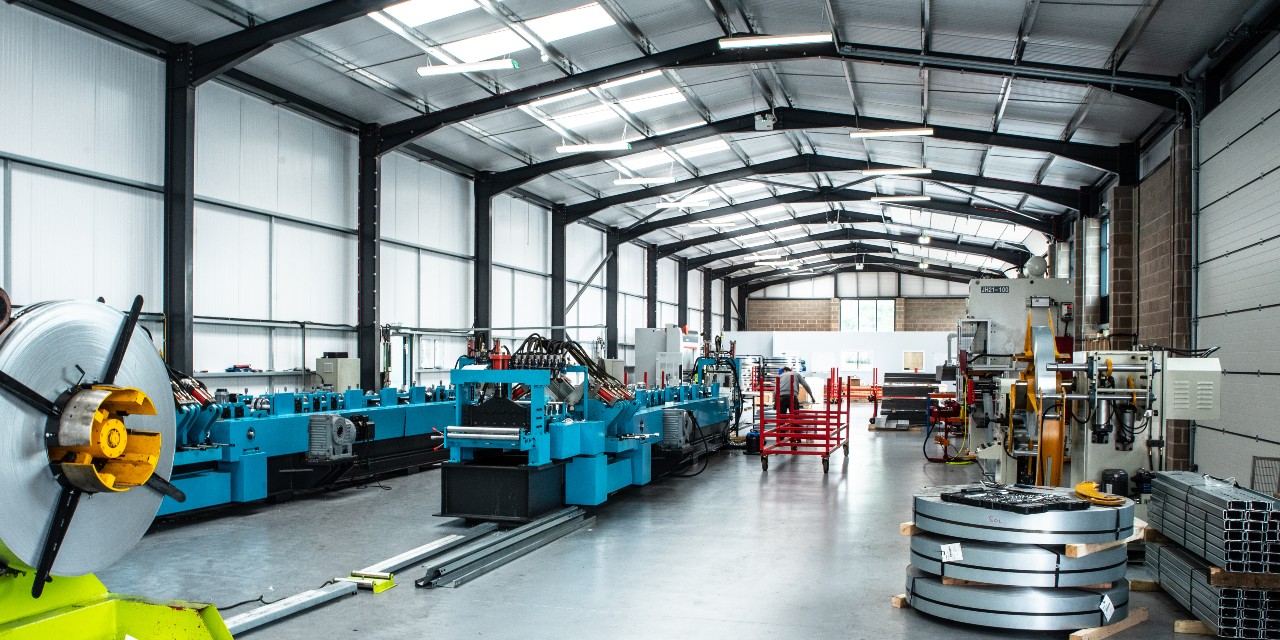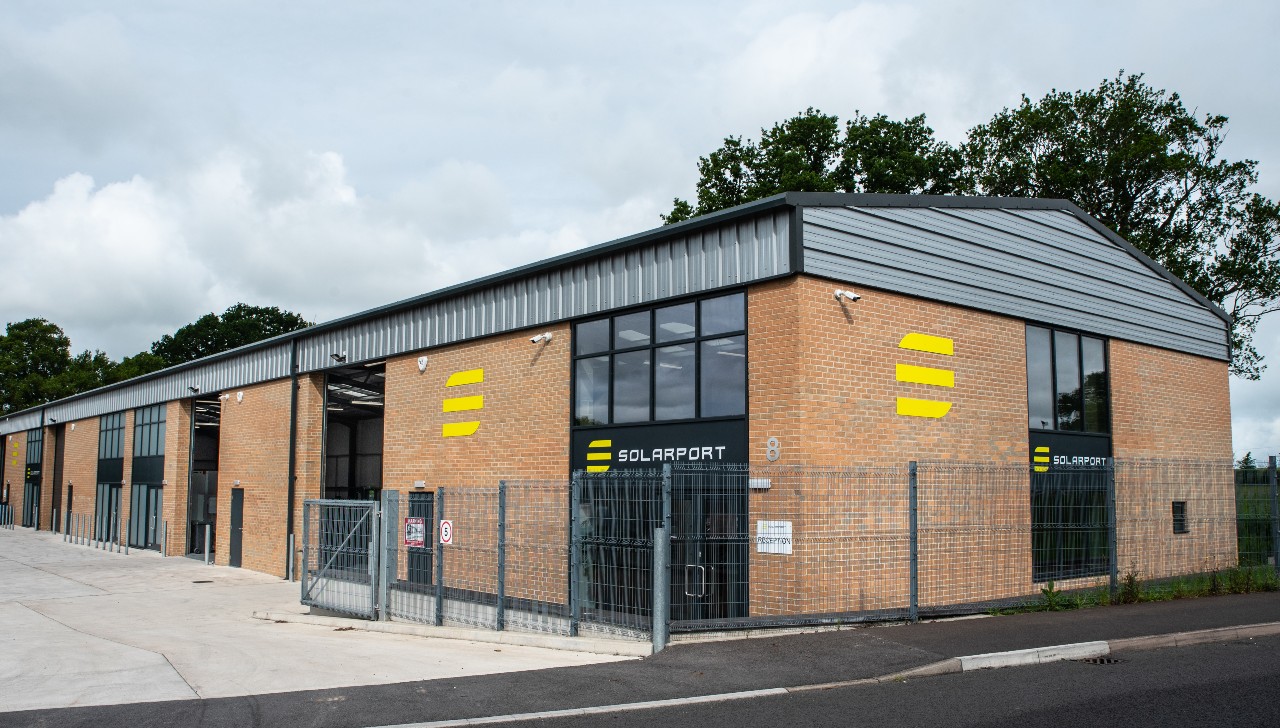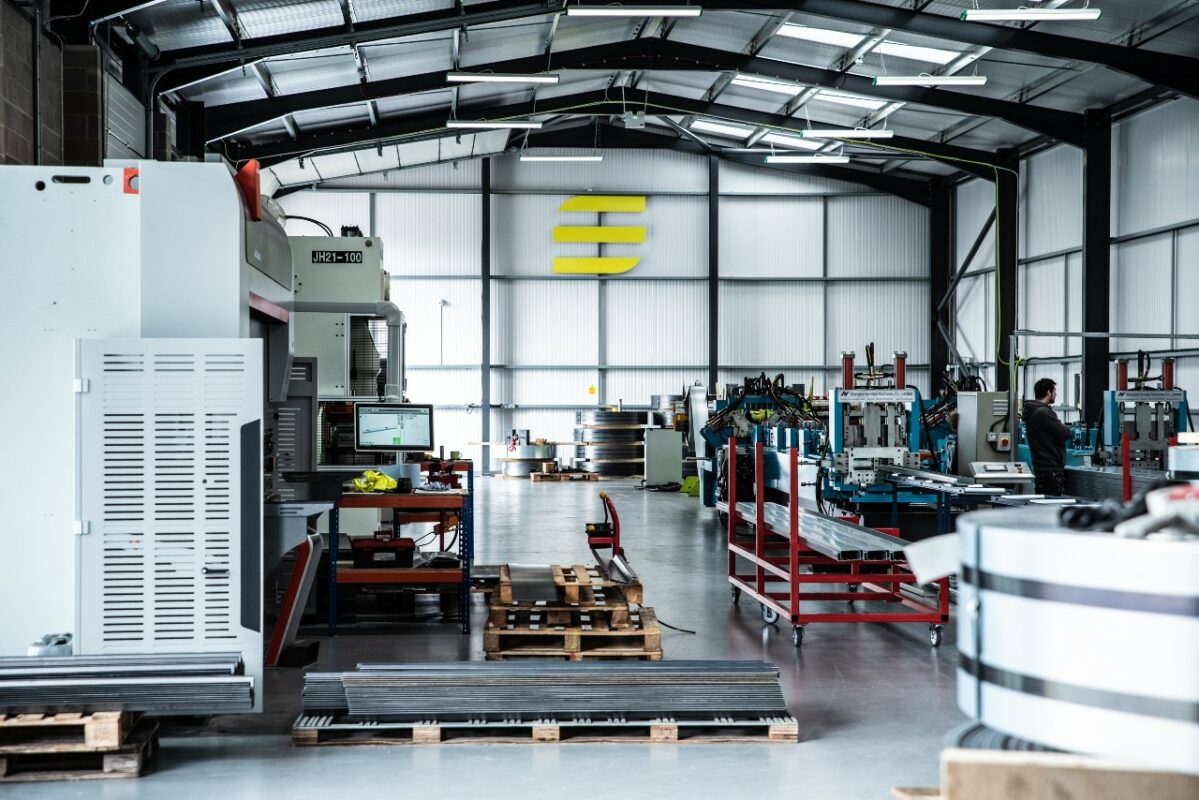
Domestic manufacturing could help overcome numerous supply chain challenges, which are continuing to impact the UK’s solar sector. Image: Solarport Systems.
One of the biggest barriers to the rollout of solar power globally is currently the supply chain. Over the past few years, it has been hit by a number of challenges, not least the pandemic and its impact on everything from resources to shipping.
The UK is far from immune to these challenges, with solar developers reporting delays due to the difficulty of sourcing panels. Challenges within the supply chains are expected to continue throughout 2022, and possibly into 2023, delaying – although not derailing – the rollout of solar.
Domestic manufacturing offers a path to help ease these supply chain challenges, ensuring that solar can continue to expand at a time when renewables are being championed for their positive environmental impact and ability to improve energy security.
Leading UK designer and manufacturer of solar mounting structures, Solarport Systems, have opened a new state-of-the-art manufacturing facility in Somerset, UK, helping to both enhance their manufacturing capacity and safeguard supply chains for their customers – delivering more rapidly and more economically than ever.
“Our products have always been for people that believe that the future of clean energy is in their hands,” said Solarport Systems managing director, David Tattershall.
“This additional manufacturing facility will further drive our mission to provide cost-effective, UK-based, solar mounting structures to those that seek quality and efficiency. We are incredibly proud to have opened our new factory and for the much-needed effect it will have on easing the supply and installation of solar PV in the UK.”
Solar supply chain challenges
There are a number of key factors contributing to the supply chain challenges in the UK, including surging shipping costs. These have skyrocketed following the pandemic, with reports of the cost of a shipping container increasing six-fold.
Another element impacting the solar PV supply chain worldwide is the availability of polysilicon. Prior to the COVID-19 pandemic, there was an oversupply, which prompted manufacturers to ramp down production. With demand returning following the pandemic lockdowns faster than expected there is now a challenge around demand outstripping supply.
While these challenges are global, the UK is also still readjusting following Brexit and its impact on imports and exports. In 2021, challenges around the availability of lorries, containers and shipping berths, as well as the increased costs and complexity of European imports strained the supply chain.
Many solar wholesalers had stockpiled towards the end of 2020 to ensure there was a buffer, however the teething problems of the new Brexit regulations were certainly felt throughout the UK solar sector in the first few months of 2021.
Given the rising shipping and equipment costs, 56% of worldwide utility-scale solar projects that were planned for 2022 are at risk of being postponed or cancelled according to research from Rystad Energy in 2021.

Solarport Systems new site in Yeovil is its third in the UK, following sites in the Midlands and North West of England. Image: Solarport Systems.
Domestic manufacturing: rapid nationwide distribution and increased local content
Solarport’s utility-scale ground mount systems are currently manufactured in the Midlands and North West of England, which offers extensive distribution capabilities across the UK.
To keep up with growing demand and to further enhance their products, services and distribution, the new facility in the South West of England is the latest edition in a line of plans to expand production sites nationally – enabling multiple utility-scale sites to be manufactured simultaneously.
The new facility will process an additional 10,800 tonnes of steel per year, helping to achieve the government’s ambition of 70GW of installed solar PV by 2035, promising to offer even faster turnarounds on UK solar PV projects.
The 21,000 square-foot facility, located in Yeovil, Somerset, is situated next to the A303 and 30 minutes from the M5, making it the perfect site for incredibly efficient distribution and accessibility.
Boosting energy security
Energy security is a particular point of interest in Britain currently, with volatility in the international gas market, exacerbated by the Russian invasion of Ukraine, driving up power prices and highlighting vulnerability.
As such, the British Energy Security Strategy was released in April, including a key focus on domestic generation from renewables to increase reliance. This includes a five-fold increase in solar energy, a move widely welcomed by the sector.
Security of supply is now more important than ever, as we work together to make sure that energy is available and affordable without costing the earth. The continued investment into expansion made by Solarport aims to offer long-term energy security throughout the UK, supplying solutions that service vital environmental needs.
Bolstering supply chains within the UK for developers and installers is paramount to solar PV success. By building localised facilities across the nation for manufacture and design, Solarport Systems is ensuring that the hassle and cost of unreliable supply chains is a thing of the past.
In practice, not only does this mean no import delays, no additional transport fees, and no supply chain issues, it also ensures that the carbon footprint of the UK solar industry is kept to an absolute minimum – cutting out the often lengthy and costly transportation of goods from abroad.

To visit the news site and find out more, email Solarport Systems at the address below. Image: Solarport Systems.
Book a visit
Interested in seeing the system before you make a purchase? Require guidance on best practice when installing? Want to just have a nose around the new factory? Solarport are holding installation tutorials and workshops.
Get in touch on [email protected] to book an available slot.

